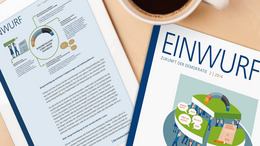For European politics it is of paramount importance that citizens get to know and make better use of existing pathways of participation. Additionally, new forms of participation must become a norm of everyday life in Brussels.
In our “Pioneers of Participation” group we’re bringing together experts and policymakers. Together we’re going to develop new kinds of participation for the European Union. However, it can thrive and survive only with the support of its citizens. That’s never been more true than it is today. Hitherto the EU has only been able to field the occasional and tentative example of citizen participation against the rising tide of populism. What people think about democracy in Europe can vary enormously, and EU citizens seldom talk to people on the other side of the border. That is why there is a need for new forms of participation which citizens will find meaningful, which are effective, and which have pragmatic links with EU institutions participation instead of Remote Policymaking in Brussels.
Many of its citizens consider the European Union to be undemocratic, elitist and remote. Every five years there are European elections. In the ensuing interval most people do not know how they can participate. In fact, in Brussels there is no such thing as a dialogue-based type of participation, which can help citizens to become directly involved in policymaking. The European Commission and the European Parliament tend to consult associations and political interest groups, whereas the individual citizen with all his interests, ideas, and enthusiasm finds it difficult to have his say.
This is where our project “Democracy and Participation in Europe” comes in. In the EU people do not know a great deal about dialogue techniques and innovative methods of participation. In our “Pioneers of Participation” group we are bringing together experts and policymakers. Together we are going to review existing and develop new participatory options for the European Union.
What people think about democracy in Europe can vary enormously, and EU citizens seldom talk to people on the other side of the border. There is a need for new forms of participation which citizens will find meaningful, which are effective, and pragmatically linked to EU institutions.






